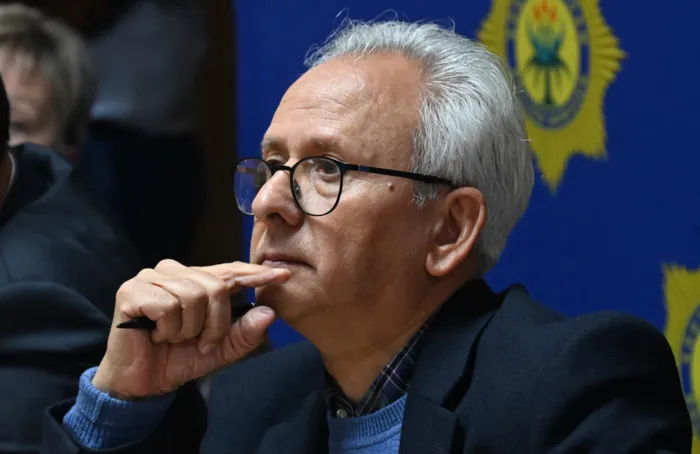
Acting Minister Firoz Cachalia has thrown his weight behind the continued existence of the Political Killings Task Team.
Image: Ayanda Ndamane / Independent Newspapers
THE Political Killings Task Team (PKTT) that Senzo Mchunu controversially disbanded has received the backing of acting Police Minister Firoz Cachalia who could not understand the reasons it was discontinued.
Testifying at the parliamentary inquiry probing allegations made by KwaZulu-Natal Commissioner Nhlanhla Mkhwanazi, Cachalia said National Commissioner Fannie Masemola had submitted a report in mid-August at his request when he was enquiring whether the PKTT was disbanded.
“In that report, he made a recommendation essentially recommending that, in his view, the task team that has been established should continue to exist and that similar capacity needed to be developed, and he was in the process of doing so in Gauteng,” he said.
Cachalia expressed conceren about the assassination of whistle-blowers and councillors after Gauteng Premier Panyaza Lesufi reported to him the killing of two ANC councillors in Soweto.
“My perspective then, by this point, was the following: I could not understand what the reasons were for the disbandment of the task team.
“It seemed to me that the problems of political killings were ongoing, and in the run-up to the local government elections, they were likely to deepen and become worse.”
His remarks are in stark contrast to Mchunu who questioned the PKTT’s effectiveness when directing Masemola to discontinue the task team.
Cachalia was testifying at the inquiry to investigate the alleged unlawful disbandment of the PKTT, the moratorium in the filling of vacancies in the Crime Intelligence Unit, and the alleged corrupt relationship between senior leadership of SAPS and members of the public, as well as political interference in the work of the police service.
The inquiry was sparked by a media briefing Mkhwanazi held on July 6, where he made allegations months after Mchunu issued the directives on December 31, 2024, to disband the PKTT with immediate effect.
Cachalia told MPs said lessons could be learnt from the good practice of PKTT because it worked based on an integrated approach to the challenge, an organised crime approach, which brought investigation and prosecutions together.
“To deal with organised crime, that is exactly what we need,” he said, adding that the criminal justice, crime prevention, and security cluster was not working together to tackle the challenge.
“I was quite happy with his (Masemola’s) recommendation, which was contained in his written report that the team should not be dismantled at the current moment, but we do need to have a conversation, and we are having a conversation on how to tackle the problem that is broader and deeper than perhaps it was five years ago.”
In his earlier testimony, Cachalia told the parliamentary inquiry about his attempts to get an update from Masemola on whether the PKTT was disbanded and what had happened to its dockets.
“It took the two of us, myself and the national commissioner, some time to get into a position to understand what he was communicating to me, and having listened to his evidence before the Madlanga Commission and yourselves, I do have a better understanding in retrospect.”
Cachalia said cartels were “increasingly emboldened, quite prepared to assassinate without consequences” as many of the cases don’t get properly investigated.
“This is not a problem localised in one province, and it is not restricted to political killings in an earlier period, if that is meant killing of politicians. The problem is a deeper one, and we certainly need, on a national basis, to respond to this problem of involvement of cartels infiltrating our institutions.”
Cape Times
Related Topics: